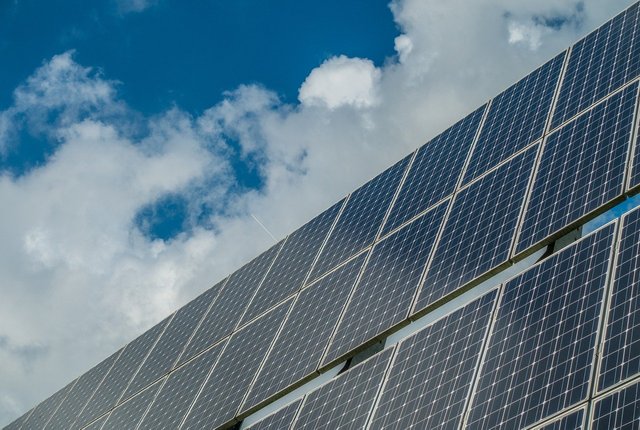Decentralized Energy Supply System

One of the special opportunities that Blockchain provide for the energy industry is that it sustain the supply growth of electricity referred as 'prosumers'. Prosumers refers to households that are able to generate electricity or become the electricity powerhouse supply system, for example, by having a solar panel installed in their buildings.
By putting users as the state of the system, both renewable energy power consumption and production can be explored exclusively, creating a positive replies constantly that accelerates the transformation of community from non-renewable to renewable energy in a maintainable way.
In order to bring such a system to reality, there need to be an incentive mechanism, for instance, prosumers should expect to be rewarded with positive return from investing in installing a solar panel as the powerhouse of the system.
Currently, the electricity energy supply system lies in a lot of challenge. The challenge does not only lies in that there isn’t a trusted platform to facilitate household electricity transactions, but also the fact that multiple intermediaries and complexity in regulatory compliance cuts the potential income for households from engaging in electricity trades.
Many governors and scholars in this field has realized the need for changes, in 2017 the European Union’s Clean Energy Package was implemented, with a set of rules on the energy production, storage and trading, aiming to persuade consumers to participate in electricity trading.
Academic literature has extensively focused on improving the market design by establishing local storage systems into national operations of power systems, nevertheless, progress is slow and we haven’t seen significant changes in the past few years.
This is where a decentralized Blockchain system could come into play.
Firstly and most importantly, Blockchain Technology could create a trustless network to encourage Peer to Peer (P2P) electricity transaction system. In any P2P transaction, trust between parties are extremely important.
If we think about how Uber, Lyft have built up their P2P exchange system, parties involved in the transaction have trust in the pairing and verification platform. (e.g. the registration process to become a Lyft driver)
Blockchain technology provides an even stronger 'trustless' system, where you don’t have to trust the third-party exchange, but only the technology. By offering cryptographic ways of tracking transactions, the transparency in terms of tracking transaction records and anonymity in terms of personal information are both upgraded.
Without a centralized control, the databases that records each and every transaction ( in an encrypted form) are stored in the device of every player involved, and in order for a transaction to be recorded, all users need to reach consensus and validate the transaction.
Furthermore, through the use of a distributed ledger system, many intermediaries are removed from the transaction, a pure P2P transaction is possible to achieve. This reduces cost and time of transaction, increasing the margin profit without including the third-party exchanges and incentive for households to engage in energy trading activities.
We have already seen practical implementations in many countries around the globe, both startups and traditional large energy suppliers are actively pushing for such a revolution.
For instance, in 2018, Centrica, the owner of British Gas worked with a American startup business to instantiate an energy sharing project for their Local Energy Market. The main purpose project aims to enable trading of energy between local businesses, consumers, the national grid and other participants in the UK.
Another example for this case is the Australian startup that is known as the "Power Ledger". It uses a blockchain-based network to establish a P2P energy trading platform. Some of its key benefits include real-time payment, automated low cost administration, transparent trading information and much more.
Apart from solar panels, another active field is EV charging (electric vehicle charging). Sales of electricity vehicles is increasing dramatically over the year.
Overall sales of Tesla’s Electric vehicle is forecasted to surpass 10 million by 2025, and responding to such a trend, the demand for charging stations will scale up exponentially. This puts pressure on the national electricity grid as millions of drivers needs for energy flows to charge their cars at the same time.
The idea of 'distributed' charging stations matches well with blockchain's characteristics, it plays a key role in improving the validation sites of a distributed charging network by allowing any owner of EV charger to be a supplier.
The use of blockchain smart contract enables trusted payment and transaction to be made between individual EV owners and EV charger providers who are unknown to each other.
We've found Crypto in your hashtags, reshared to @crypto.defrag
Downvoting a post can decrease pending rewards and make it less visible. Common reasons:
Submit